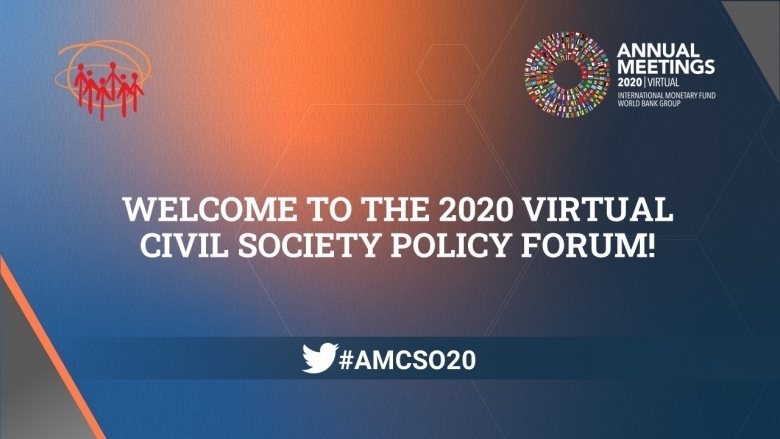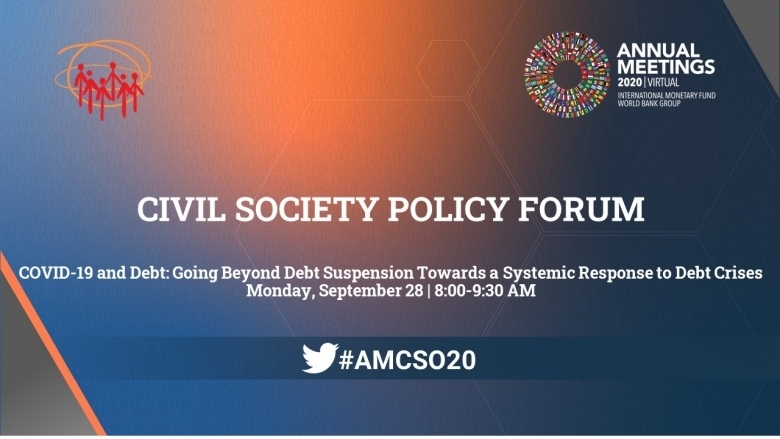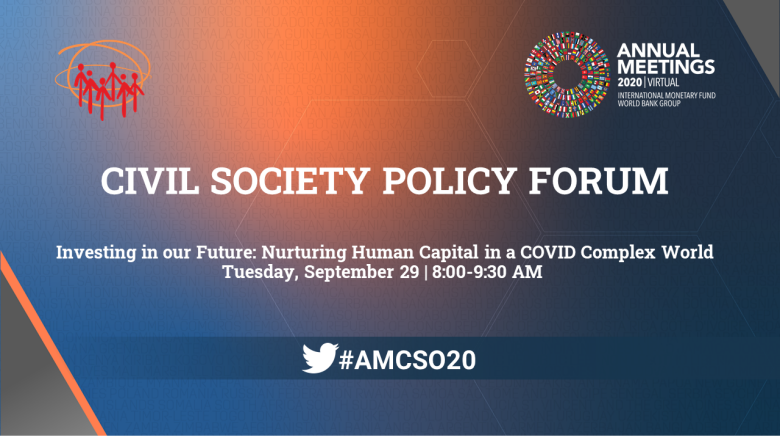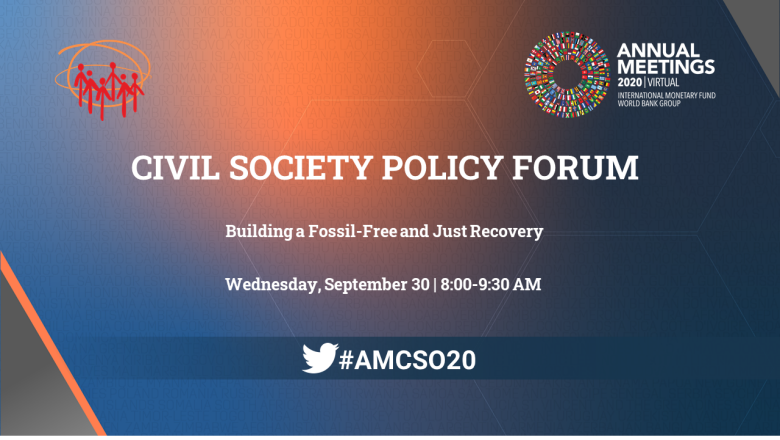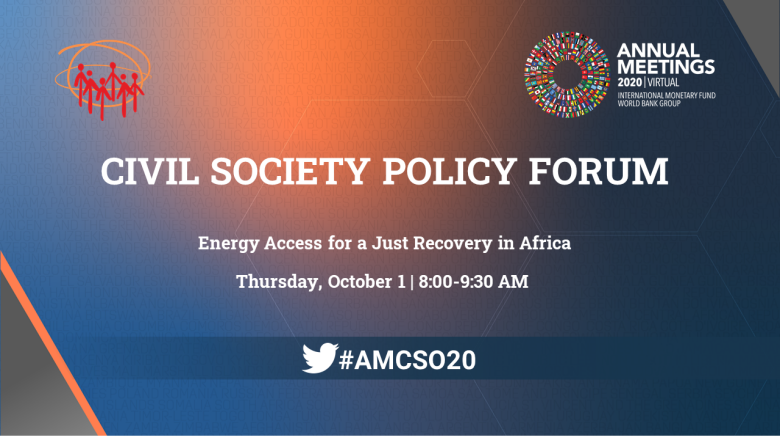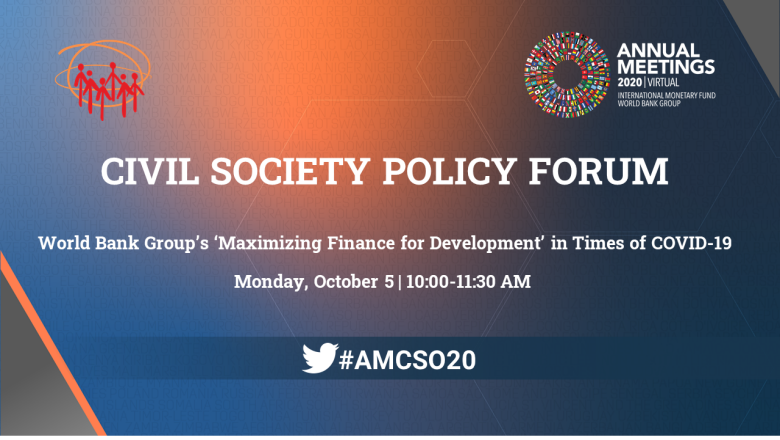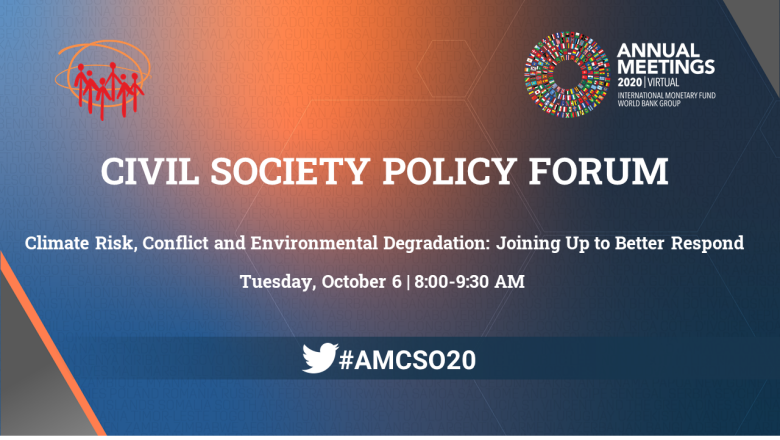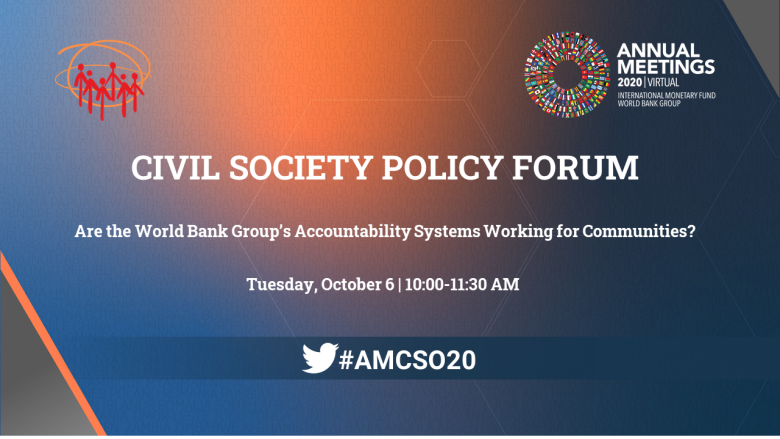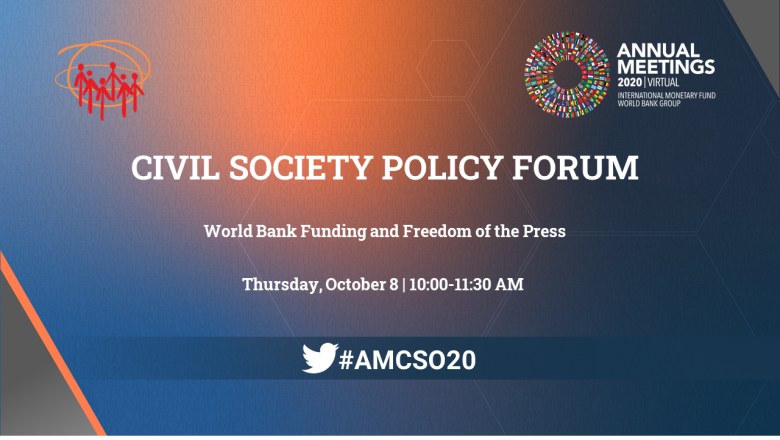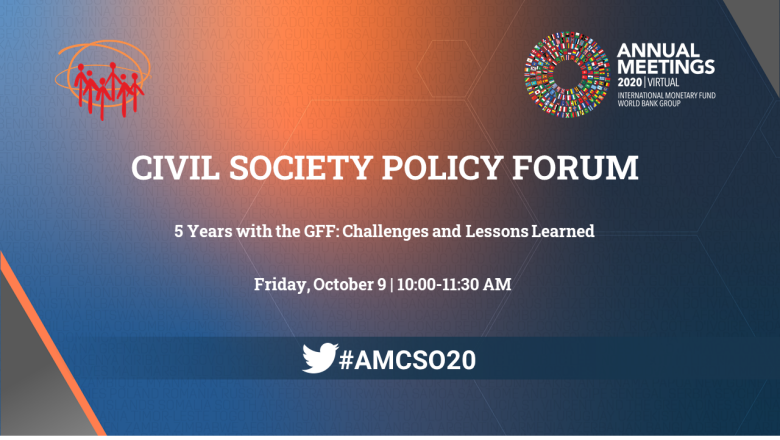In response to the ongoing crisis posed by the COVID-19 pandemic, the World Bank and IMF have recently announced that this year’s Annual Meetings will be held in a “primarily virtual format” from October 12-18, 2020. Ensuring that civil society can continue to engage and dialogue with World Bank and IMF remains a priority for the two institutions. Thus, in cooperation with the Civil Society Policy Forum (CSPF) Working Group, we launched the call for proposals for a virtual CSPF to take place over the course of the weeks directly preceding the Annual Meetings, from September 28 to October 9, 2020 in the morning in Washington D.C (EDT)
The call for porposals closed on August 31, 2020 at 9 AM EDT.
Session organizers will be notified if their session has been selected for inclusion in the CSPF, prior to posting the preliminary CSPF program schedule online.
Due to the virtual nature of this year’s CSPF and the need to organize sessions at a reasonable time for participants in several time zones, the number of sessions we are able to accommodate will be limited. We will have space for roughly 10-15 sessions, and thus cannot guarantee that every proposal will be accepted. For this reason, we ask that each organization sponsor only one session. Proposals jointly sponsored with other CSOs – especially from different regions of the world – are highly encouraged.
If you want to submit a joint proposal, and/or would like to work on your proposal offline, you will have to follow these two steps that will become available when we open the call for proposals:
| STEP 1 | Proposal form (for drafting) |
| | Download this Word version of the submission form to work on your proposal offline with your colleagues or network/partners. |
| STEP 2 | Proposal form (for final submission) |
| | The deadline for submitting a session proposal was Monday, August 31, 2020 by 9:00 AM EDT (Washington, D.C. time). |
The deadline for submitting a session proposal was Monday, August 31, 2020 by 9:00 AM EDT (Washington, D.C. time).
